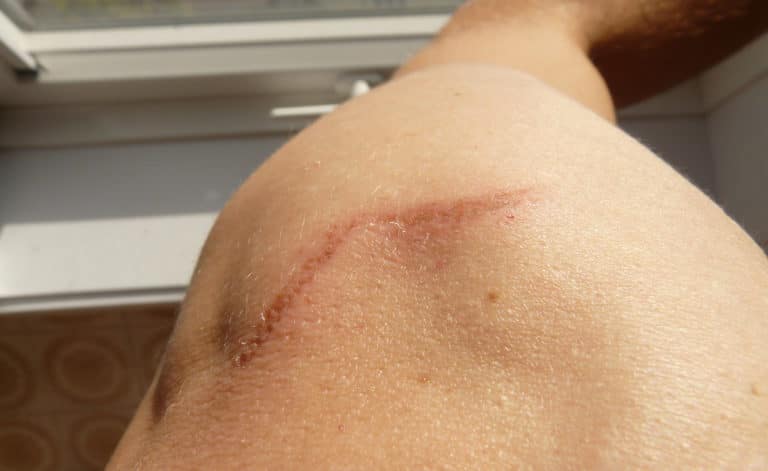Now that we’ve reached the heart of summer, many people feel more comfortable wearing shorter and looser clothes to beat the heat. But for people with visible scars, summer can be a difficult time. It is common to feel self-conscious about the marks on your body, but fortunately, you don’t have to be.
How Do Scars Form?

Scars develop when your body is healing damaged skin. Once the skin is injured, the body begins repairing the wound by prompting growth of new tissue. For minor wounds, like a scratch, the skin heals seamlessly, but for more serious injuries, a scar can be left.
Scars can occur when your body produces too much or too little tissue to close a wound. There are different types of scars that are classified by the amount of tissue growth.
Keloids are formed when too much tissue is generated. The result is a raised scar that is larger than the original wound.
When too little tissue is produced, the scar can appear sunken. Scars caused by chickenpox or acne tend to fall in this category because inflammation in the skin ultimately destroys collagen.
Scar contractures, which often result from burns, cause the skin to have a different texture and affect flexibility and mobility of the skin.
How Scars Affect Self-Esteem
Research shows that visible scars can have a profound effect on self-confidence, regardless of the original cause.
A study published in the Journal of Plastic Reconstructive & Aesthetic Surgery sought to determine how skin scars affect patients’ quality of life.
Researchers gathered data from thirty-four patients with a wide range of scar types, severity and onset. They gathered 573 statements related to need impairment by skin scars, which were classified into 44 themes covering five main areas:
- Physical comfort and functioning
- Acceptability to self and others
- Social functioning
- Confidence in the nature and management of the condition
- Emotional wellbeing
“The majority of respondents were unhappy with their scar’s appearance due to their perceived stigma and psychological associations, and thus adopted different coping behaviours to hide or compensate for them. Often this made them unsociable and interfered with their communication skills, personal relationships, work life and leisure activities,” the authors said.
“Support services should be made available, along with clinician and public education to improve management and help reduce patient distress.”
Solutions for Improving Quality of Life
Therapy and counseling are helpful for improving self-esteem, but sometimes it is best to address the underlying cause. If you have scars that affect your quality of life, you can talk to an expert aesthetician about ways to reduce the appearance of your scars.
For more information or to schedule an appointment, call Hampton Roads ENT today.
